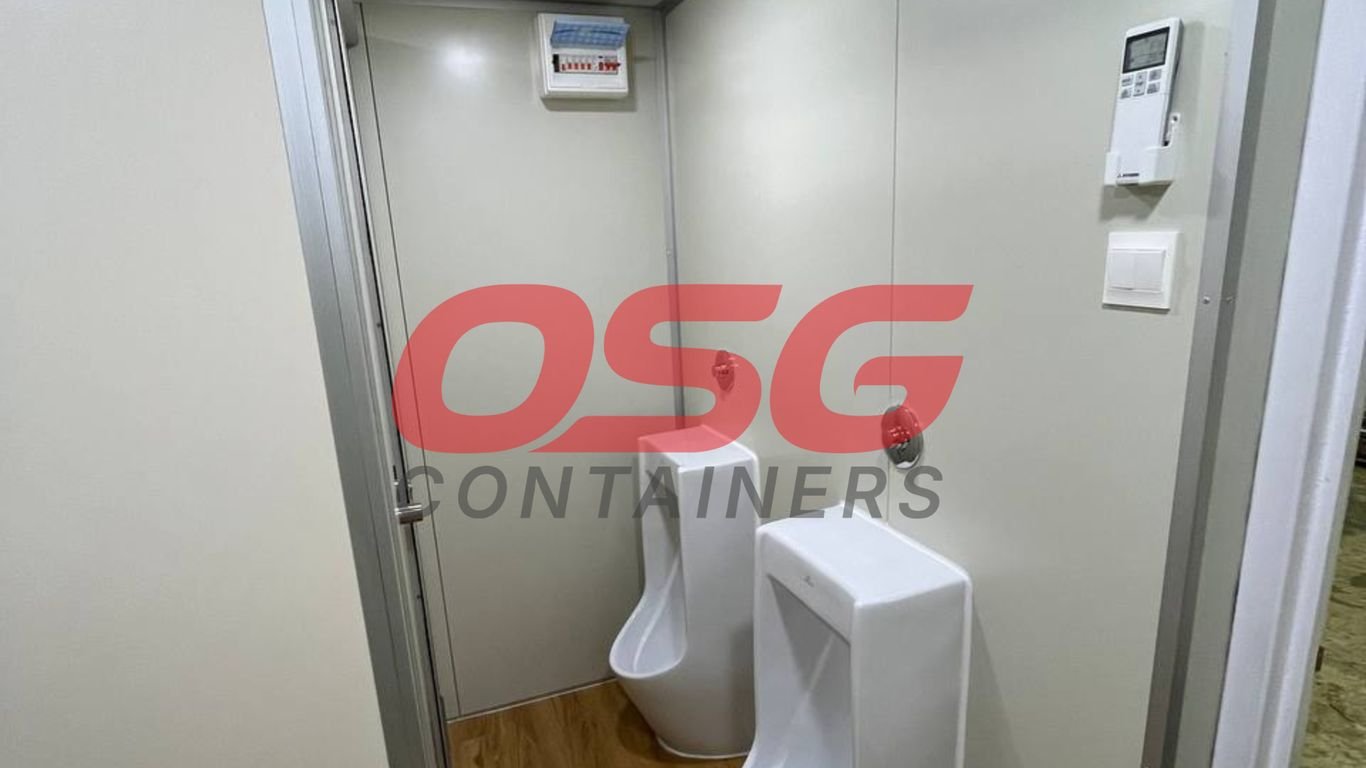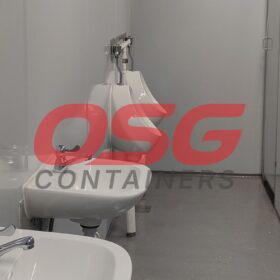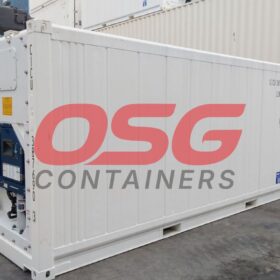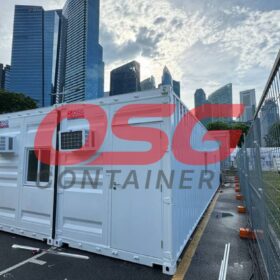Renting a portable toilet might not sound like the most exciting part of planning an event or managing a job site, but it’s definitely one of those things that makes everything run a lot smoother. Whether you’re planning a big outdoor wedding, a music festival, or just need facilities for a construction crew, a portable toilet rental is a key piece of the puzzle. Most people don’t think too much about them until they absolutely have to, and that’s when mistakes can happen. So, to help you avoid common issues and make sure your guests or workers are comfortable, here are a few things you should know about portable toilet rental before you book.
Key Takeaways
- When you’re looking at portable toilet rental, remember there are different types available, from basic units to fancy trailers with sinks and air conditioning. Pick the one that fits your event’s style and your guests’ needs.
- Don’t guess on the number of units. Consider how many people will be there, how long the event lasts, and if alcohol will be served. It’s usually better to have a few too many than not enough to avoid long lines and unhappy people.
- Think about where the portable toilets will go. They need to be easy for guests to find and use, but also accessible for delivery and servicing. Placement matters for comfort and convenience.
- Regular servicing is a must. A portable toilet rental isn’t a set-it-and-forget-it item. Make sure you have a plan for waste removal, restocking supplies, and keeping the units clean throughout the rental period.
- Check if you need permits. Depending on your location and where you plan to set up the portable toilets, you might need official permission. Your rental company can often help you figure this out.
Understanding Your Portable Toilet Rental Options
When planning any event or project that will have people gathered, thinking about restroom facilities is a must. It might not be the most glamorous part of the planning process, but it’s definitely one of the most important for guest comfort and overall success. You’ve got a few different ways to go when it comes to renting a mobile toilet, and knowing your choices can make a big difference.
Exploring Different Types of Portable Restrooms
Not all portable toilets are created equal. You’ll find a range of options, from the basic, no-frills units often seen on construction sites to more refined models. For a standard event, a basic portable toilet unit will likely do the job. These are functional and get the basic need met. However, if your event is a bit more upscale, like a wedding or a corporate gathering, you might want to look at something a little nicer. Some companies offer units with better ventilation or even a small sink for handwashing. When looking for a portable toilet rental in Singapore, for instance, you’ll find providers who cater to various needs.
Luxury Trailers vs. Standard Units
This is where things can really change the guest experience. Standard units are your typical porta-potties. They’re practical and get the job done. But then you have the luxury restroom trailers. These are a whole different ballgame. Think of them as portable hotel bathrooms. They often come with flushing toilets, running water sinks, mirrors, lighting, and sometimes even air conditioning. For events where you want to provide a more comfortable and even elegant experience, a luxury trailer is the way to go. They can make a huge difference in how guests perceive the event’s quality.
Essential Add-Ons for Enhanced Sanitation
Beyond the unit itself, there are extras that can really boost the sanitation and comfort levels. Handwashing stations are a big one, especially if the standard units don’t have sinks. Many rental companies can provide these as separate units or as part of a larger trailer. Other useful additions include:
- Hand sanitizer dispensers: Always a good idea, no matter the unit type.
- Extra toilet paper: Running out is never a good look.
- Waste bins: For any other trash guests might have.
- Mirror: A small addition that guests appreciate.
Choosing the right type of mobile toilet and the right add-ons is all about matching the facility to your event’s style and the expectations of your guests. It shows you’ve thought about their comfort, which is always a win.
When you’re looking into a portable toilet rental, asking about these different types and available add-ons is key. It helps you get the most bang for your buck and makes sure everyone stays happy and clean throughout your event.
Ensuring Guest Comfort and Event Success
Let’s be honest, nobody wants to think about the bathroom situation at their event, but it’s one of those things that can make or break the whole experience for your guests. If people are stuck in long lines or, worse, can’t find a clean place to go, it’s going to put a damper on things, no matter how great the food or music is. Thinking ahead about restroom facilities is a big part of making sure everyone has a good time.
Avoiding Long Lines and Guest Frustration
One of the quickest ways to get complaints is by not having enough restrooms. It’s a simple math problem, really. More people means more trips to the bathroom, especially if you’re serving drinks or have a diverse age range of guests. Kids and older folks might need to go more often, and if alcohol is involved, well, that definitely speeds things up. Having a sufficient number of units means fewer people waiting and more people enjoying your event.
Here’s a quick way to think about it:
- Guest Count: This is your starting point. A rough guide is one unit for every 50-75 guests for a standard event.
- Event Type: If you’re serving food and alcohol, you’ll likely need to increase that number. Think about adding 15-20% more units.
- Duration: Longer events mean more use, so plan accordingly. For multi-day events, regular servicing becomes even more important.
Creating a Positive Guest Experience
Beyond just having enough, think about the quality of the restroom experience. Nobody expects a five-star hotel bathroom at an outdoor wedding or a construction site, but there are ways to make it much more pleasant. This is where those upgraded units come in handy. Things like better lighting, mirrors, and even hand-washing stations can make a big difference. It shows your guests you’ve thought about their comfort.
Consider these points:
- Accessibility: Always include at least one ADA-compliant unit. It’s not just the law in many places; it’s about being inclusive.
- Privacy: Ensure units are placed where guests feel comfortable using them, away from the main event areas but still easy to find.
- Aesthetics: For more formal events, consider luxury restroom trailers. They offer a much more comfortable and private experience, often with flushing toilets and sinks.
When planning your event, it’s easy to get caught up in the big picture – the venue, the catering, the entertainment. But overlooking the restroom facilities is a common mistake that can lead to guest dissatisfaction. A little extra attention to the number and type of portable restrooms can significantly contribute to the overall success and positive impression of your event.
Maintaining Event Hygiene and Cleanliness
Hygiene is a big one. A clean event space is important, but a clean restroom is paramount. If your portable toilets start to smell or look unkempt, it can really detract from the overall atmosphere. Regular servicing is key here. It’s not just about emptying the tanks; it’s about restocking supplies like toilet paper and soap, and making sure the units are deodorized.
- Servicing Schedule: For events lasting more than a day, or those with high usage, arrange for regular servicing. Weekly is standard for construction, but events might need more frequent attention.
- Hand Sanitizer/Washing: Make sure there are options for guests to clean their hands. Hand sanitizer dispensers are a minimum, and hand-washing stations are even better.
- Waste Management: Proper waste disposal prevents unpleasant odors and keeps the area around the units clean. This is where professional servicing really pays off.
Logistical Considerations for Portable Toilet Rentals
When you’re planning an event or a work site, thinking about where the portable toilets will go and how they’ll be managed is super important. It’s not just about ordering a few units; it’s about making sure they fit into your overall plan without causing headaches. A good port o potty rental company will help you figure this out, but it’s good to have an idea yourself too.
Determining the Right Number of Units
Figuring out how many units you need can feel like guesswork, but there are some guidelines. It really depends on how many people will be using them and for how long. For a short event with a few hundred people, you might need fewer than for a multi-day festival or a busy construction site. Too few units lead to long lines and unhappy guests, while too many might be overkill.
Here’s a general idea, but always check with your rental company:
- Single-day events: Consider the expected attendance. A rough estimate might be 1 unit per 50-100 people.
- Multi-day events: Usage increases significantly. You might need more units, or at least a plan for more frequent servicing.
- Construction sites: OSHA has guidelines based on the number of workers. It’s usually 1 unit per 10 workers for a standard 40-hour week, but this can vary.
- Events with alcohol or food: These tend to see higher usage, so plan accordingly.
Strategic Placement for Accessibility and Convenience
Where you put the portable toilets matters a lot. You want them easy to find and use, but not right in the middle of everything. Think about:
- Accessibility: Make sure people can get to them easily, without having to walk too far or navigate difficult terrain. They should be on level ground.
- Proximity: Place them close enough to the main activity areas so people don’t have to trek across the entire site, but not so close that they’re a distraction or an unpleasant smell near food or seating areas.
- Traffic Flow: Avoid placing units where they’ll create bottlenecks or block pathways. For large events, spreading them out can help.
- Servicing Access: Ensure the rental company can easily access the units for pumping and cleaning without obstruction.
Placing units on firm, dry ground is key. Nobody wants to use a porta potty that’s sinking into mud after a bit of rain, or worse, one that’s unstable.
Understanding Delivery and Servicing Schedules
When you book your port o potty rental, you’ll need to discuss delivery and pickup times. For single-day events, it’s usually straightforward: drop off in the morning, pick up at the end. For longer rentals, like construction projects or multi-day festivals, you’ll need a servicing schedule. This typically involves pumping out the waste, cleaning the unit, and restocking toilet paper and sanitizer. For busy sites, weekly servicing might not be enough; you might need mid-week or even daily checks, especially if food and drinks are involved. Discussing these details upfront with your rental provider helps avoid any surprises and keeps the units in good shape throughout your rental period.
The Importance of Regular Servicing and Maintenance
Why Frequent Servicing is Crucial
Think about it: a portable toilet is only useful if it’s, well, usable. Leaving a unit out for days or weeks without any attention is a recipe for disaster. Regular servicing is what keeps these units functional and hygienic for your guests or workers. Without it, you’re looking at a whole host of problems, from unpleasant odors to actual health concerns. For events, especially those with food and drinks, hand hygiene is a big deal. If people can’t wash their hands or find the facilities unusable, it can really sour the experience. For construction sites, it’s about keeping your crew happy and productive. Nobody wants to take a break only to find the restroom is out of commission.
What Regular Maintenance Entails
So, what exactly happens during a service? It’s more than just a quick pump-out. A typical service includes:
- Waste Removal: Pumping out the holding tank to prevent overflows.
- Restocking Supplies: Making sure there’s plenty of toilet paper, and if hand sanitizer dispensers are included, refilling those too.
- Cleaning and Deodorizing: Wiping down surfaces, especially high-touch areas like door handles, and adding deodorizers to keep things smelling fresh.
- Water Refill: For units with hand-washing stations, ensuring there’s fresh water available.
For longer rentals, like multi-day festivals or construction projects, you’ll want to discuss a service schedule. Weekly servicing is common, but for high-traffic events, daily or even twice-weekly visits might be necessary. It really depends on how many people are using the units and the conditions.
Recognizing Red Flags in Servicing
When you’re looking at rental companies, pay attention to how they talk about servicing. If they don’t bring it up, or if they seem vague about their cleaning process, that’s a warning sign. A reputable company will have a clear plan for maintenance and be able to recommend a schedule based on your event’s size and duration. Don’t be afraid to ask questions about their cleaning procedures and how often they plan to service the units. If a company seems hesitant to discuss maintenance, it might be best to look elsewhere. You don’t want to be stuck with unusable units because the servicing plan was an afterthought.
The frequency of servicing isn’t just about avoiding bad smells; it’s about public health and guest satisfaction. A well-maintained portable restroom contributes positively to the overall atmosphere of your event or worksite, while a neglected one can quickly become a major point of complaint and a genuine problem.
Navigating Permits and Regulations
Okay, so you’ve figured out how many units you need and what kind. Now for the part that can sometimes feel like a maze: permits and local rules. It’s not the most exciting topic, but skipping it can lead to some serious headaches, like fines or having to move your units last minute. Always check with your local authorities before your rental arrives.
When Permits Are Necessary for Rentals
Whether you need a permit really depends on where you’re setting up and what kind of event or project you’re running. If you’re placing units on public property, like a park for a festival or a street for a parade, you’ll almost certainly need permission. Construction sites often have specific regulations too, sometimes tied to worker safety standards. Even private property might have rules, especially if you’re in a residential area or a place with strict zoning.
Here’s a quick rundown of when permits are commonly required:
- Public Property: Parks, sidewalks, streets, community centers.
- Large Public Events: Festivals, concerts, fairs, marathons.
- Construction Sites: Especially for longer durations or larger crews.
- Areas with Specific Zoning: Some neighborhoods or districts have rules about temporary structures.
- Near Sensitive Environmental Areas: Lakes, rivers, protected lands might need extra review.
Understanding Local Regulations
Every town, city, and county has its own set of rules. These can cover a lot of ground, from how many units you need based on expected attendance (think OSHA guidelines for construction) to where you can actually put them. Some places are picky about aesthetics, too – you might need units that blend in with the surroundings, or they might need to be screened from view. It’s also worth asking about any advance notice requirements; some municipalities want a heads-up weeks before delivery.
Local regulations are designed to keep public spaces clean, safe, and orderly. They help manage sanitation, prevent nuisances, and protect public health. Ignoring them isn’t just a risk to your event; it’s a potential issue for the community.
The Role of Rental Companies in Permitting
Good portable toilet rental companies are usually pretty knowledgeable about the rules in their service area. They can often guide you on what permits might be needed and sometimes even help you through the application process. They know the common requirements for things like:
- Number of Units: Based on crowd size, duration, and type of event.
- Placement: Restrictions on proximity to water sources, buildings, or property lines.
- Servicing Frequency: Mandated cleaning schedules to maintain hygiene.
- Accessibility: Requirements for ADA-compliant units.
Don’t be afraid to ask your rental provider for advice. They want your rental to go smoothly just as much as you do, and they’ve likely dealt with local permitting offices countless times before. However, remember that ultimately, the responsibility for obtaining the correct permits often falls on you, the renter. It’s always best to do your own due diligence by contacting your local city hall or county clerk’s office if you’re unsure.
The Environmental Benefits of Portable Restrooms
When you think about portable toilets, you might not immediately picture "eco-friendly." But honestly, they can be surprisingly good for the planet, especially when you compare them to traditional plumbing.
Water Conservation Compared to Traditional Toilets
This is a big one. Traditional toilets use a lot of water with every flush – we’re talking gallons. Portable toilets, on the other hand, use special solutions to break down waste. This means they use way less water, which is a huge deal, particularly in areas where water is scarce. Think about a big outdoor festival or a construction site with hundreds of people. If everyone was using standard toilets, the water usage would be massive. Portable units cut that down significantly.
Here’s a quick look at the difference:
| Toilet Type | Water Usage Per Flush (Approx.) |
|---|---|
| Standard Flush Toilet | 1.6 – 6 gallons |
| Portable Toilet | Minimal (uses chemicals) |
Eco-Friendly Products and Practices
Many companies that rent out portable toilets are stepping up their game. They’re not just about the basic unit anymore. You can often find options that use biodegradable cleaning agents and deodorizers. Some even offer handwashing stations that use less water or hand sanitizer dispensers, which cut down on water use even further. It’s about making the whole setup as green as possible.
- Biodegradable waste treatments
- Water-saving handwashing stations
- Recycling and trash receptacles offered with rentals
The controlled collection and transport of waste to treatment facilities is a key environmental advantage. This process prevents potential contamination of local soil and water sources, which can happen with less managed waste disposal methods. It’s a more responsible way to handle waste, especially in sensitive outdoor environments.
Reducing Environmental Impact at Outdoor Locations
For events or work sites in natural settings, portable toilets are a lifesaver for the environment. Without them, people might end up using the surrounding natural areas, which can cause lasting damage to plants, soil, and water. Providing accessible and clean portable restrooms helps keep these beautiful outdoor spaces clean and protected. It’s a simple way to ensure that your event doesn’t leave a negative mark on the environment.
So, About Those Portable Toilets…
Look, renting a portable toilet isn’t exactly the most glamorous part of planning an event or managing a job site. It’s easy to overlook, but honestly, getting it right makes a huge difference. Whether it’s a wedding, a festival, or just a busy work site, having enough clean, accessible restrooms keeps everyone comfortable and happy. You don’t want your guests or workers dealing with long lines or, worse, no options at all. By thinking about the different types available, where to put them, and making sure they get serviced, you’re not just providing a basic necessity – you’re making sure your event or project runs smoothly. It’s one of those behind-the-scenes details that really pays off.
Frequently Asked Questions
What are the different types of portable toilets available?
You can find basic portable toilets, which are great for construction sites. But for events like weddings or parties, there are fancier options! These can include luxury trailers with sinks, mirrors, and even air conditioning, offering a much more comfortable experience.
How do I know how many portable toilets I need?
It’s important to figure out the right number based on how many people will be there, how long your event lasts, and if food or drinks will be served. Too few can lead to long lines and unhappy guests, while too many can be a waste of money. Your rental company can help you calculate this.
Where should portable toilets be placed at an event?
You want to put them somewhere that’s easy for people to find and get to, but not too close to the main party areas like food tables or seating. Make sure there’s enough space for delivery and servicing too. Signs can help guests locate them easily.
How often do portable toilets need to be cleaned or serviced?
Regular servicing is a must to keep them clean and stocked with toilet paper and sanitizer. For events with lots of people or where food and drinks are served, more frequent cleaning is often needed. Your rental company will set up a schedule for this.
Do I need a permit to rent portable toilets?
Sometimes, yes! Depending on where you are and if the toilets are on public land, you might need a permit. Local rules can cover placement and how often they need to be cleaned. Your rental company can usually help you figure this out and handle the paperwork.
Are portable toilets good for the environment?
Surprisingly, yes! Unlike regular toilets that use lots of water, portable toilets use special chemicals to break down waste. Many companies also use eco-friendly cleaning products. They also help reduce waste in natural areas when used at outdoor events.
 Singapore
Singapore Australia
Australia Indonesia
Indonesia Japan
Japan Malaysia
Malaysia New Zealand
New Zealand Philippines
Philippines South Korea
South Korea Taiwan
Taiwan Thailand
Thailand VIETNAM
VIETNAM




